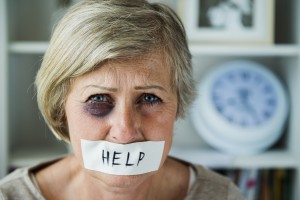
Most people are aware that child abuse and domestic violence are huge problems in today’s society. Another growing problem is that of elder abuse. The elderly population is growing. In 1970, people aged 65 and older only accounted for about 20 percent of the population of the United States. In 2010, the figure increased to about 40 percent. As people age, they deal with mental health problems, such as dementia, and more health problems that are physical in nature. This makes seniors more vulnerable.
However, research into elder abuse lags about 20 years behind that of child abuse. There are some very real challenges when it comes to elder abuse. First, there’s no consistent definition of what actually constitutes elder abuse. It includes the same elements of child abuse, like neglect, physical abuse, and sexual abuse, but elder abuse can encompass financial elements that children would not necessarily have to deal with.
Another problem with elder abuse is that of ethical issues in research. What do researches do if they discover abuse in their study? How do you manage the confidentiality of the individual while providing assistance? There is also a lack of academic researchers delving into this issue. These researchers also need a definition of a successful outcome in an intervention. There are many questions that hinder data gathering in elder abuse, which is making it more difficult to understand the scope of the problem.
A Growing Trend of Elder Abuse
Although the data is limited, state Adult Protective Service agencies do report a growing number of cases each year. In one study in New York, 1 in 13 older adults reported at least one form of elder abuse in the year. However, experts believe that elder abuse is severely under-reported.
Researchers do know that there are some common risk factors in elder abuse. People without a social network have a higher risk of experiencing abuse. It’s thought that women are more likely to be victims of elder abuse than men. Women and men of a younger age, from 55- 65, were more likely to report abuse than those aged 70 and older. This may simply be due to the fact that they feel more empowered to report abuse. Being poor or having fewer economic resources is another higher risk factor in elder abuse.
What Can You Do to Prevent Elder Abuse?
Elder abuse affects everyone. It’s not just the one member of your family who is hurt. Of course, that is a serious problem in itself, but the scope of the problem is much broader. Elder abuse leads to a higher risk of death and mental health decline in the individual. There’s the financial burden that elder abuse places on the healthcare system. An elderly person with bed sores from neglect will require long-term treatment, because his or her body doesn’t heal as fast as someone much younger. One study estimates that elder abuse increases the nation’s annual health expenditures by more than $5.3 billion each year.
If not having a social network is a risk factor, then the opposite holds true. One of the best ways to prevent elder abuse is to have a social support system. You have to stay in contact with your elderly friends and family members. Visit them and talk about how things are going. Make sure they have the medical aids they need. Ask them about their meals and their health. Listen for the signs of abuse. Most victims won’t come out and tell you they need help. But they might say that they don’t get good food or they don’t have enough water to drink. You are the best preventative measure against elder abuse for those you love. If you don’t have authority to intervene, contact your local Adult Protective Services and let its caseworkers take over.

